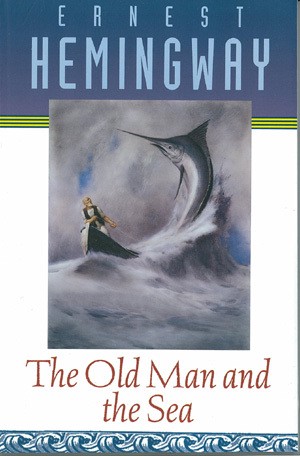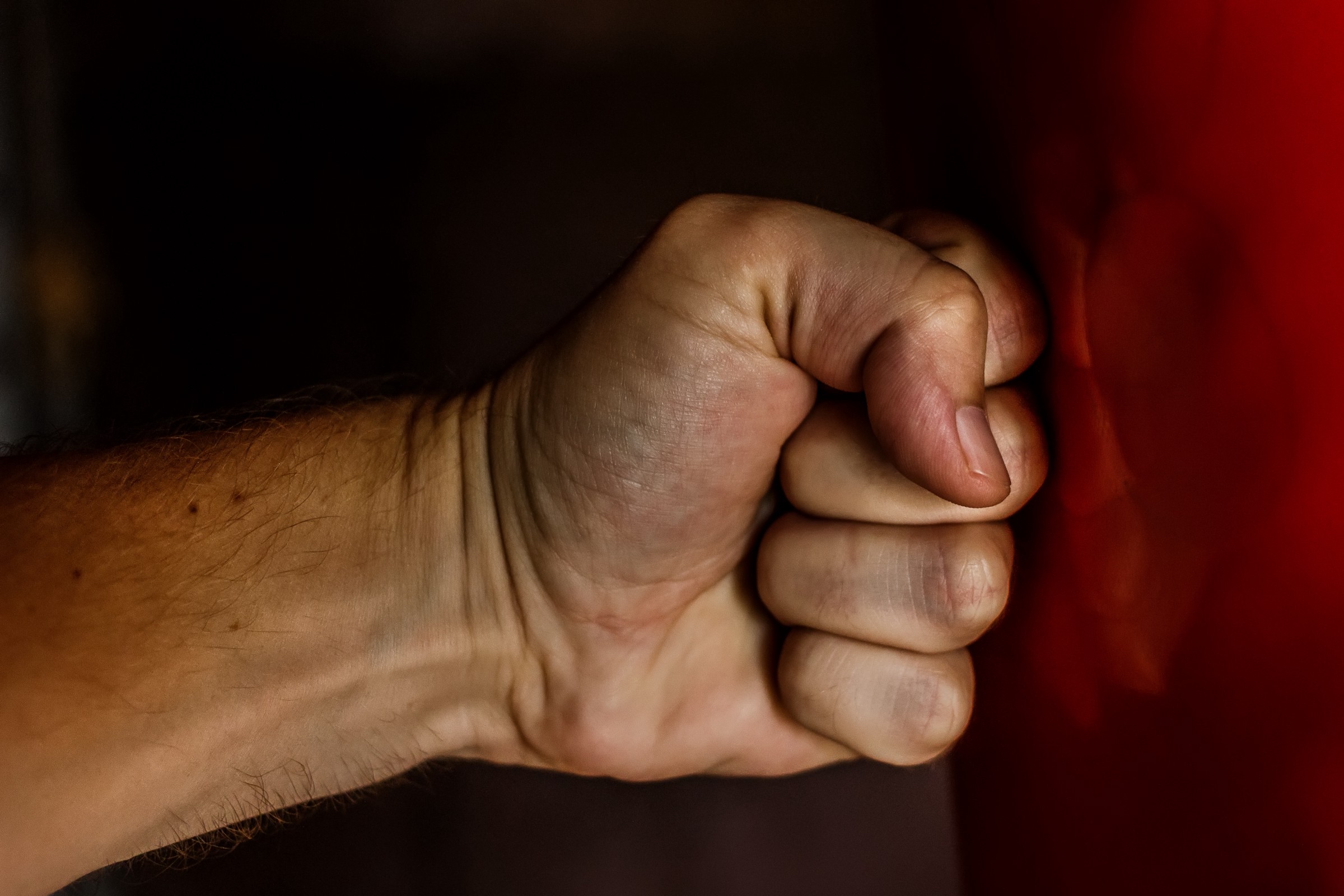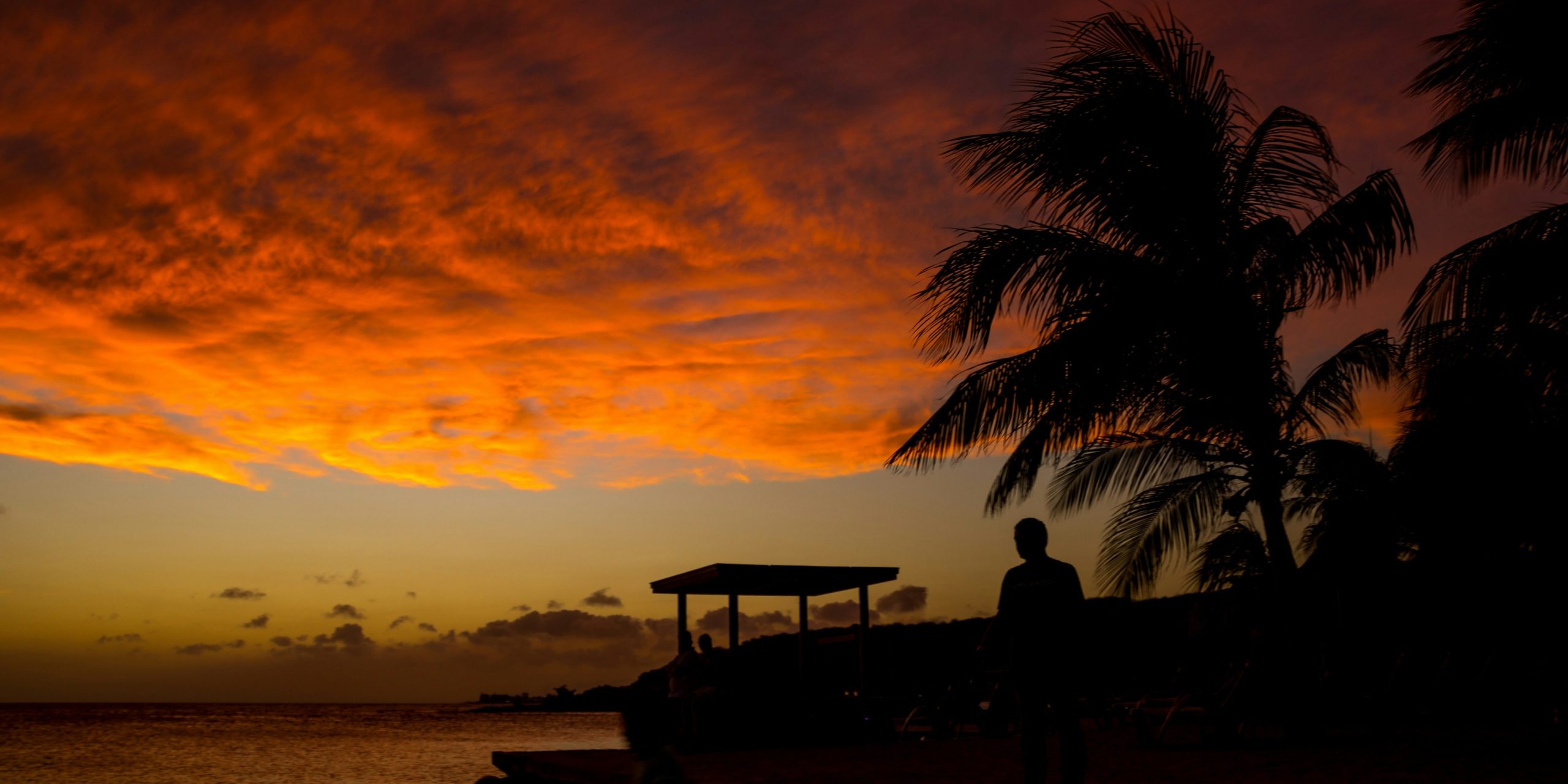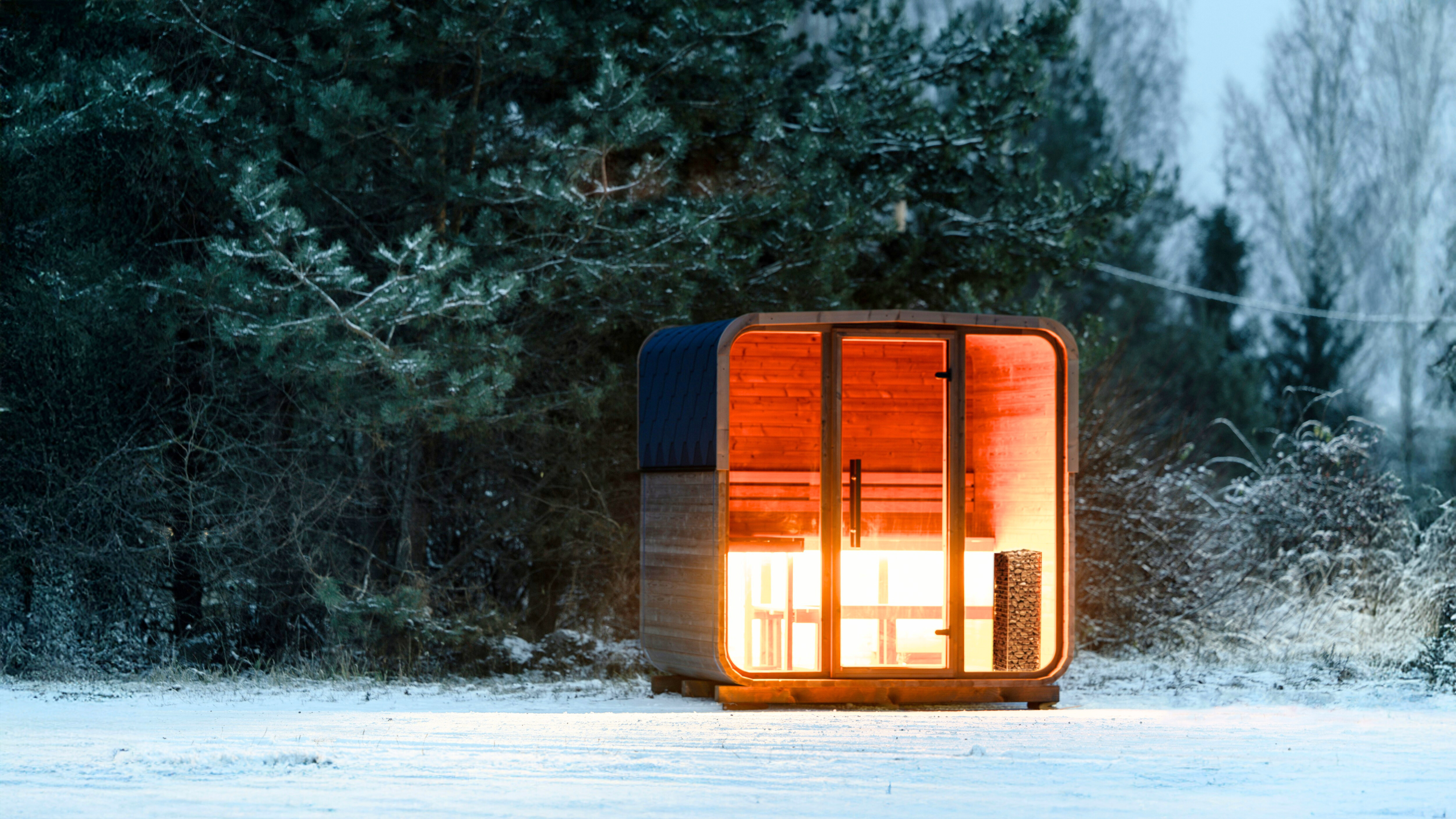Books & Culture
My Old Man and the Sea
Understanding my dad, and my grief, through Ernest Hemingway

After my father’s death, I ended up in what I came to call “The Worst Apartment in Daytona.” Muggy and humid, the linoleum seethed with cockroaches at night. The stench of my next door neighbor’s weed seeped through the wall and, more than once, I watched from my front window as the parking lot filled with lights and sirens.
After six months of working nights as a certified nursing assistant and coming home to an apartment packed with the detritus of my former life, I ripped open the cardboard boxes of my dad’s books to seek refuge. He owned four copies of The Old Man and the Sea, one for each of our bookshelves. When I asked him why, he said the book was like a barometer. That with each new decade of his life, he would read the novel again, and it would tell him who he was. Every time he read it, he saw Santiago’s marlin as something different: his brothers’ deaths, loneliness, our failing horse farm, my mother’s mental illness.
My dad was one of those people who always seemed to have the right answer. I would have given anything to talk to him again. I always thought of things, like jokes or realizations, I wanted to text him, but thought the intimacy of reading his books would be more than I could endure. I was afraid reading the book again would be like having a conversation with him. I would want the novella to last forever and, unable to finish it, I would become stuck in my grief. The problem was, I didn’t want to grieve. I didn’t want any of this. I wanted my old life.

Reading The Old Man and the Sea again was like Santiago, the book’s protagonist, going out to fish: he hoped for a catch, sure, but he didn’t anticipate he would catch that behemoth marlin. He thought he would be back quickly. So did I. I didn’t understand grief before. I thought people who were dragged under the surface of it were weaker than me. But I soon found grief was a much bigger fish than it looked from a distance. Up close, it was a marlin the size of my boat, and I thought, like Santiago did, that either it would take me or I it; there was no in-between.
When I opened the book, a faded receipt fell out. It was for Gooding’s Supermarket in Silver Springs, FL, close to my parents’ horse farm. The date stamp at the top read 05/27/90, 39 days after I was born. My dad bought pineapple-orange-banana juice, pork ribs, and water. He was running the horse farm then. As I read I tried to imagine what he was thinking. Inexplicably, he underlined each instance of the word “urinated” and blued in the ‘o’ in whore. No other marginalia waited to clue me into his thoughts.
Who was my dad each time he read this book? If I hadn’t moved home from college when he was first diagnosed, I would hardly have known him. Before then, I knew him as any child knows a parent. He was an archetype, a stand-in, not a fleshed-out character. I knew a list of things he liked: planes, books, history, and cooking. I knew a rough outline of his life, with many spaces held by “I’ll tell you when you’re older.” In the four years between his diagnosis and his death, we spent hours, weeks, days together. He filled each of these moments with stories.
I didn’t understand grief before. I thought people who were dragged under the surface of it were weaker than me.
When he was a teenager, his favorite part of being a stock boy at Publix was getting there at 4 AM, before everyone else, and planting a lingering fart in the freezer. A few years later, when he was driving a delivery truck for Hughes Supply, he nearly got into a car accident with a pretty girl, because he was trying to impress her. Like most of his stories, this one was apocryphal. It included the truck catching air from an overpass and slamming down so hard that all the bathtubs in the back cracked. And for the girl he ran off the road, he tried to smile his way out of it. This got him a date at least, but she wasn’t the one.
The dad who arose from his stories wasn’t the same guy I knew as a kid. This version of my dad was a charmer and a goofball. He surfed and rode motorcycles. Once, a woman moved in with him because he cooked her coq au vin. That woman was later the classroom mom of my kindergarten. He taught me life was funny like that.
To this day, I don’t know everything about him. I only know his stories and the stories others told. But I do know enough that I can guess what the marlin was each time he read The Old Man and the Sea.
Dearest Jenny: Reading My Chinese Father’s English Letters
As a young man, the marlin was hope, lost to tragedy. With his brothers’ deaths — his younger brother Timmy killed in an accident involving a lawn mower when he was a little kid (seven, I think?), and his older brother John in a motorcycle accident while he was on shore leave from the Navy in the Keys. These two deaths shattered everything my dad believed about the world. Before that, he believed, as many people do, that bad things only happen to bad people. He read The Old Man and the Sea soon after that, and he saw Santiago’s fortunes rise and fall with the marlin. Santiago, who seemed virtuous and hard-working, lost everything. On his first reading of The Old Man and the Sea, my dad saw that life could be fickle and cruel.
In his mid-20s, my dad’s marlin was love. He once told me that women get over love easier than men, and I think he said that because of someone in his past, a woman who died in a car accident a week before he was going to propose. If he ever told me her name, I can’t remember it. Despite his love of storytelling, he kept certain memories guarded, especially the ones about death. Did he think he was guarding me? Did he think if I knew how dark the world could be that I’d lose hope like he did?
Did he think he was guarding me? Did he think if I knew how dark the world could be that I’d lose hope like he did?
He met my mom on a blind date when he was 28, and they were married six months later. She was a whirlwind of emotions. A storyteller, too, the words she wove around our lives elevated them to the level of myth. According to her, we were southern gentility. Her favorite book was Gone with the Wind. A champion equestrian and racehorse trainer, like my dad, she had struggled against grief: her brother shot himself in the head, and her father, a lauded neurosurgeon who mapped the brain with Wilder Penfield, mixed sleeping pills with wine and never woke up.
It makes sense that their love was tumultuous. My childhood is marked by arguments about inconsequential things. In particular, a spat about eggs benedict carried on for more than ten years. But the early days of their marriage, at least according to my mom’s and his stories, weren’t so contentious.
By the time my mom became pregnant with me three years into their marriage, she was running Arabian Nights Farm, one of whose horses had won the Arm and Hammer Classic. Before then, my dad had never ridden a horse. But while my mom was pregnant, and for a while after I was born, my dad, the city-boy surfer, ended up running the farm.
What was his marlin then, 39 days after I was born? Was the marlin me? Was it my life? He always said he wanted a better life for me than he had. I thought that meant the American Dream sort of thing: house, car, job, family. Except he had all that. Nonetheless, he seemed disappointed. He wanted to be a naval aviator. He wanted to go into space. He wanted to be a writer. He fell in love over and over again. His life hadn’t turned out the way he planned, but disappointing lives don’t make the kinds of stories he told.
What was his marlin then, 39 days after I was born? Was the marlin me? Was it my life?
Maybe when he said he wanted me to have a better life, he meant a life not full of grief. But that, I think, would be a bleak sentence. A life without grief would be a life without love.
My problem has always been that I fall in love with everything. That’s why I’m a writer. It gives me free rein to pursue, to obsess. My dad had the same problem. I believe he saw himself in me and that scared him. He wanted to protect me. That’s how I was his fish.
I discovered that one night with the rain sloshing down in The Worst Apartment’s flooded courtyard, and the more I thought, the more I understood that grief was not my fish. Just like I was my dad’s, he was mine: he spent years of his life amassing enough money so that I might have all the chances he didn’t. All the possibilities had hung before me. They were the shore at the other side of my grief, far away, but they were there.
I was living in a hellhole. I hated my job. I didn’t have family to turn to. I didn’t know where I was going. Everything he’d done for me, I was afraid that I had wasted it. He continued to work two years into his illness to make sure I went back to school. In those years, I commuted to class, dreamed of being a writer, and came home to watch as his condition worsened until he could no longer walk. I had just barely graduated before then, but I couldn’t work, because he needed me. Our savings dried up, and after he died, I struggled to find my place in the world. I was a caregiver for the elderly, because I couldn’t get another job. My dream of being a writer — of being anything other than in poverty, struggling paycheck to paycheck — seemed as far as a distant shore.
All the possibilities had hung before me. They were the shore at the other side of my grief, far away, but they were there.
It’s been almost four years since my dad died. I still think about him, but it’s starting to hurt less. I’m a teacher and a writer now, and I feel like I’m doing something, that all the heartache he accumulated in his life was not wasted on me.
Most importantly, I think he’d be proud that I didn’t let the marlin sink me. I passed the sharks, weathered the expanse of grief to find the shore…but unlike Santiago, I made it home with my marlin, because of it. Those last months of his life showed me I didn’t need to lose the thing I was struggling against — whether it was faith, love, grief, or disappointment — to make it back to shore.
My dad experienced so much grief and heartache, but in the end, even though he was dying, even though he was afraid, he was happy because he had me.
“I would do it all over again,” he said with tears in his eyes the last time he left the hospital. “The divorce, cancer, everything. Because if that never happened, you would’ve never become my friend.”







